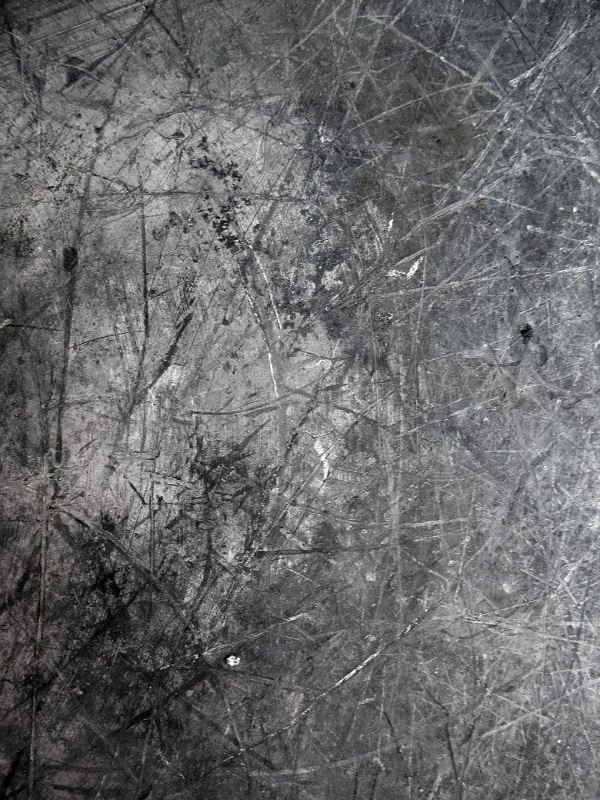FWP:
SETS
JAUHAR: {5,4}
MIRROR: {8,3}
For background see S. R. Faruqi's choices. This verse is NOT one of his choices; I thought it was interesting and have added it myself. For more on Ghalib's unpublished verses, see the discussion in {4,8x}.
In Persian and Urdu ghazal, the heart is metaphorically a mirror (see for example {12,4x})-- a metal mirror, so that it must be polished in order to reflect clearly the glory of the Lord, and/or the beauty of the beloved. To be polished, its dirt and verdigris must be (painfully) scrubbed away with something like steel wool, so that the face of the mirror becomes covered with tiny scratches and lines.
The melancholy, suffering heart is also, in another famous Persian-Urdu metaphor, a 'knot' that is difficult or impossible to open, even with the 'fingernails of contrivance'; for more on 'knot' verses, see {8,2}.
The present verse has jammed the two metaphors together: the small thread-like polish-lines on the 'mirror' of the heart cannot be untangled as if they were parts of the 'knot' of the heart. Instead, the 'fingernails of contrivance' are left 'broken' by the effort. In an 'enchantment', no rational 'contrivance' will work; Ghalib was a great fan of the :tilism -filled 'Dastan of Amir Hamzah'.
Of course, as Zamin observes, 'to try to open the threads of polish-lines is not the act of a person who is right in the head'. And surely that's part of the point: the crazed lover is behaving like a madman. In his world, 'here' [yaa;N], things are radically confused: he is baffled by his inability to unravel the polish-lines, and believes that the mirror is (under) some kind of 'enchantment' or magic spell.
On the grammar of jauhar :tilism , see {129,6x}.

Zamin:
That is, a difficult knot can't by any means be opened; its enchantment is the enchantment of the polish-lines of a mirror. He has expressed this meaning like this: ((uqdah-e mushkil kaa :tilism jauhar aa))iinah honaa aa))iinah hai . But because of convolutedness in the construction, [one reads it as] aa))iinah ((uqdah-e mushkil ke jauharo;N kaa :tilism hai . But in this case the verse will be meaningless, because to try to open the threads of polish-lines is not the act of a person who is right in the head.
== Zamin, p. 307